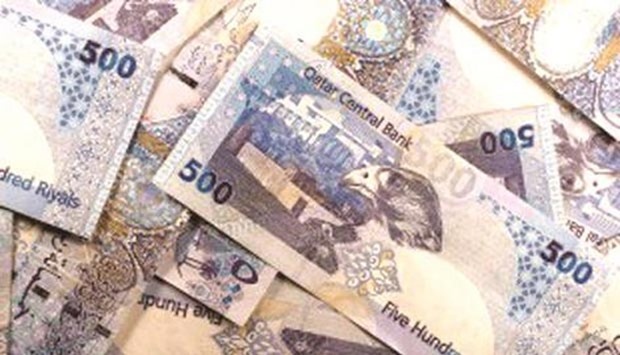Qatar will post its “first current account deficit” in almost two decades this year, as hydrocarbon prices remain depressed, shows a new report by BMI Research, a Fitch Group Company.
“We forecast the current account to turn back to surplus from 2017 - as hydrocarbon prices edge higher - but the surplus will average only 1.7% over the next decade, well below its past levels,” BMI Research’s Emerging Markets analyst Olivier Najar told Gulf Times on Saturday.
He said BMI Research believes that Qatar's first current account deficit since 1998 “poses little risks” to the country's external balance and currency peg.
“Doha has very large foreign reserves available to cover short-term shortages and protect the peg if needed, reinforced by the $256bn held by the country's sovereign wealth fund at the end of 2015. The country therefore has enough financial buffers for immediate needs,” Najar stressed.

Qatar’s first current account deficit in almost 20 years in 2016 will be “short-lived and poses little risk” to the country’s external balance and currency peg, BMI Research said.
With hydrocarbon prices edging higher from 2017, Qatar's external balance will “rapidly turn back” to positive territory, it said.
“Doha has immense foreign reserves available to cover short-term shortages and protect the peg if needed, while we believe that the country's current account deficit will be short-lived as hydrocarbon prices gradually edge higher from 2017,” the report said.
Hydrocarbons have accounted for an average of 80% of total Qatari exports for more than a decade. As a result, Qatar's current account has “suffered extensively” from the drop in global hydrocarbon prices that began in the summer of 2014.
Having averaged a staggering surplus of 21.7% of GDP between 1999 and 2014, Qatar's current account balance plunged to 7.3% of GDP in 2015, and BMI Research forecasts it to further drop to -1.6% of GDP in 2016.
Over the next decade, BMI Research forecasts the current account to turn again to surplus - as hydrocarbon prices edge higher from 2017 - but average only 1.7%, well below its past levels.
But the “rapid deterioration in Qatar's external balance is no cause for concern,” it said.
According to BMI Research, the foreign currency reserves of the Qatar Central Bank amounted to $36bn in February (based on latest data available), enough to cover more than a year of imports.
On top of it, the country's sovereign wealth fund held $256bn at the end of 2015, according to the Sovereign Wealth Fund Institute.
“Over the past three months, market sentiment towards the country's external sustainability has improved,” BMI Research said.
The pressure on the Qatari Riyal decreased significantly since January, when Brent crude price traded at a low of $28 for a barrel, compared to $49 on May 25.
The quote on the riyal 12 month forward decreased to 245 forward points on May 25, compared to a high of 449 in early January, BMI Research noted.
He said BMI Research believes that Qatar's first current account deficit since 1998 “poses little risks” to the country's external balance and currency peg.
“Doha has very large foreign reserves available to cover short-term shortages and protect the peg if needed, reinforced by the $256bn held by the country's sovereign wealth fund at the end of 2015. The country therefore has enough financial buffers for immediate needs,” Najar stressed.

Qatar’s first current account deficit in almost 20 years in 2016 will be “short-lived and poses little risk” to the country’s external balance and currency peg, BMI Research said.
With hydrocarbon prices edging higher from 2017, Qatar's external balance will “rapidly turn back” to positive territory, it said.
“Doha has immense foreign reserves available to cover short-term shortages and protect the peg if needed, while we believe that the country's current account deficit will be short-lived as hydrocarbon prices gradually edge higher from 2017,” the report said.
Hydrocarbons have accounted for an average of 80% of total Qatari exports for more than a decade. As a result, Qatar's current account has “suffered extensively” from the drop in global hydrocarbon prices that began in the summer of 2014.
Having averaged a staggering surplus of 21.7% of GDP between 1999 and 2014, Qatar's current account balance plunged to 7.3% of GDP in 2015, and BMI Research forecasts it to further drop to -1.6% of GDP in 2016.
Over the next decade, BMI Research forecasts the current account to turn again to surplus - as hydrocarbon prices edge higher from 2017 - but average only 1.7%, well below its past levels.
But the “rapid deterioration in Qatar's external balance is no cause for concern,” it said.
According to BMI Research, the foreign currency reserves of the Qatar Central Bank amounted to $36bn in February (based on latest data available), enough to cover more than a year of imports.
On top of it, the country's sovereign wealth fund held $256bn at the end of 2015, according to the Sovereign Wealth Fund Institute.
“Over the past three months, market sentiment towards the country's external sustainability has improved,” BMI Research said.
The pressure on the Qatari Riyal decreased significantly since January, when Brent crude price traded at a low of $28 for a barrel, compared to $49 on May 25.
The quote on the riyal 12 month forward decreased to 245 forward points on May 25, compared to a high of 449 in early January, BMI Research noted.

